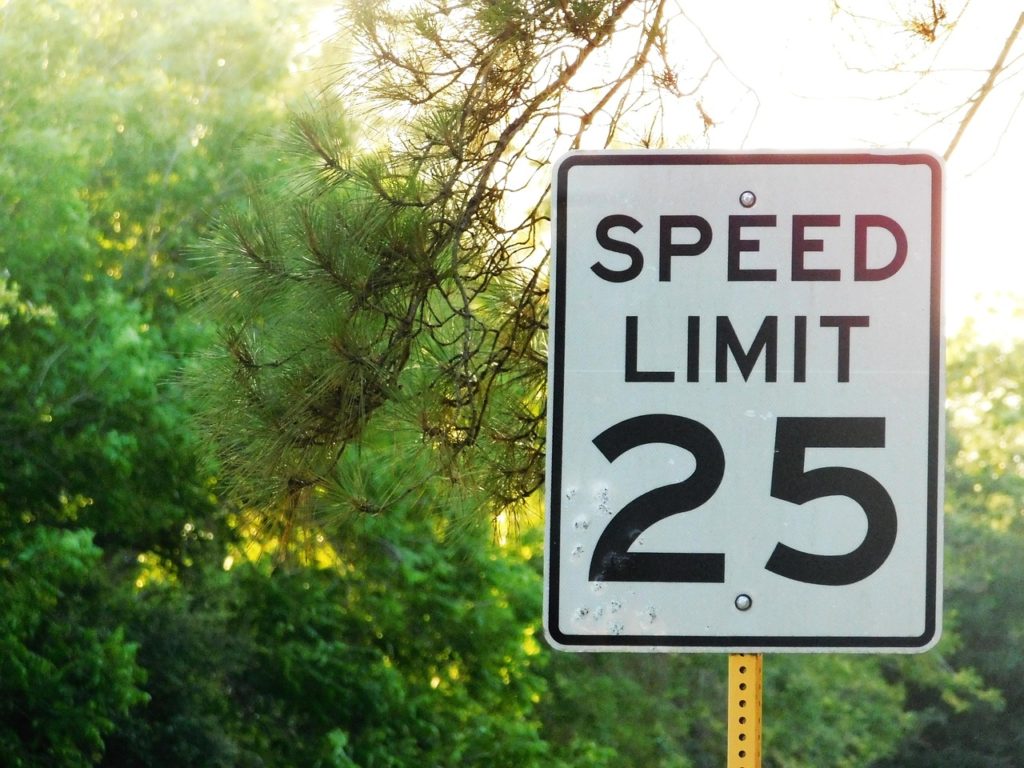Don’t Ignore the “Speed Limit”: How the Sufficiency of Scripture Should Make Us Patient
January 28, 2019

January 28, 2019
As I was pulling into my driveway one evening, I noticed a group of my neighbors huddled in a circle looking at a postcard. As soon as I opened my car door, one of my neighbors yelled from across the street, with a slightly condescending tone, “Dave, do all churches do this?” Uh oh, I thought.
My wife and I had been building relationships with our neighbors for a few years now. Our friendships had grown while shoveling snow, walking dogs, and sharing meals. The Lord had given us many opportunities to talk about the gospel. We wanted our neighbors to know the grace and love of Jesus Christ. It hadn’t happened yet, but we keep praying, speaking, and enjoying their friendship.
So, this question alarmed me. I had a hunch what it was about. That summer, my neighborhood had been the focus of three churches’ marketing strategy. So I was beginning to wonder the same thing as my friends: Do all churches do this?
As it turns out, a nearby church plant brought up a missions team from the pastor’s home state. They rented a large white van and stuffed it full of people and postcards. “A van full of people with Southern accents handed these out,” a different neighbor said. With typical New England sarcasm, another said, “They stared at us through the window like they were on a safari. We’re the heathen animals of New England they’ve come to save!” They all chuckled. So did I.
But I stopped laughing when my neighbor handed me the postcard. I immediately noticed the collage of big screens, the bright lights, and the friendly people in casual clothes. But what stood out to me more than the images were these three bulletin points:
That last bullet point made me recoil—and I wasn’t the only one. The face of my sarcastic neighbor changed. She was either sobered or annoyed. Maybe both. She said, “You know, Dave, if I wanted to hear music I’d hear on the radio, I’d stay home and listen to the radio. I’d go to church for a different reason.” I asked my other neighbors, “What do you think? Why would we go to church?” We had a good conversation. No one was converted but I think we made progress.
THE BIBLE’S SPEED LIMIT
Unbelievers see things more clearly than we think. They sniff out our attempts to market Jesus. They see through our sales pitches. They’re far more serious about their worldview than we give them credit for. And I think our ignorance of this fact offends them even more than the content of our worldview.
Why do we carelessly condescend in trying to reach our unbelieving friends? We could list a few answers. Here’s one. We ignore the speed limit we see in the Bible.
I assume the brothers and sisters who walked through my neighborhood wanted this church to reach as many people as possible so that more people would hear the gospel. The postcard was a well-intentioned effort to make the idea of church less intimidating. In fact, their example caused me to ask questions of myself. Do I love New Englanders as much as the men and women who left their homes to come here? Have I lost my sense of urgency? Am I not moving fast enough?
SLOW DOWN
And yet, I’m convinced that our well-intentioned and good-hearted efforts to get people into a church building quickly often compromise the very goal we want to accomplish. This happens when our methods aren’t shaped by our message, and I think this is what happened on my street.
Fast growth is good, even desirable! But it appears to be unusual in Scripture and throughout church history. The speed limit posted throughout Scripture seems to be much slower than we realize. Just think about it. Forty years is a long time to walk around in the wilderness. And just how long did the Law collect dust in the Temple before Hilkiah stumbled upon it accidentally?
The New Testament is similar. Yes, quick growth happened in the early chapters of Acts, but the Jerusalem Council happened roughly 15 years after the resurrection! And how long did Paul labor in the churches for what seemed like little growth?
Or consider your own life—both your sanctification and the sanctification of your people. Even if you’ve been a Christian for decades, you still have a long way to go.
The Bible’s speed limit signs are posted everywhere, but our focus on numbers and fast growth causes us to speed right by them. These signs call us to a ministry characterized by patience. Patience, after all, is part of God’s character (2 Pet. 3:9–10), the fruit of the Spirit (Gal. 5:22), and the mindset of the faithful pastor (2 Tim. 2:24, 3:10, 4:2).
Are we paying attention? Is our well-intentioned, fast-paced approach shortsighted? Have our methods hijacked our message? Read 1 Corinthians 1–3 for Paul’s answer to this difficult question.
As we read through Scripture, we ought to consider the speed limit. We ought to get out of the fast lane long enough to reflect on the sufficiency of Scripture or our own philosophy of ministry, and to rest in God’s sovereignty to build his church. We ought to spend less time thinking about marketing so as to reach people not there, and more time thinking about equipping the saints who are there. After all, I bet that 10 godly, gospel-loving people will be far more effective in reaching your town than 10,000 postcards. The speed limit in Scripture encourages us to a more patient, persevering, and sustainable ministry, one that more commonly takes the long view.
RESOURCES
Here are some good places to start.
Sufficiency of Scripture:
Philosophy of Ministry